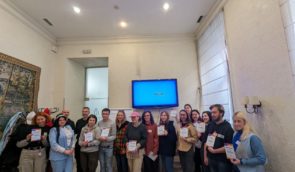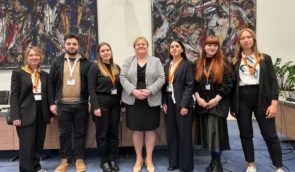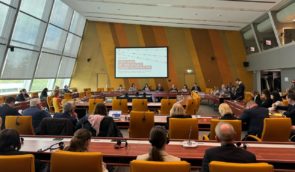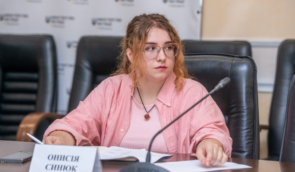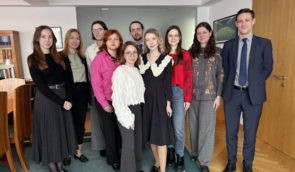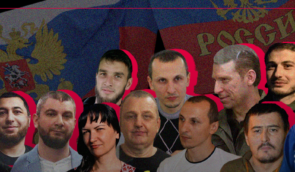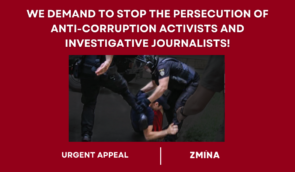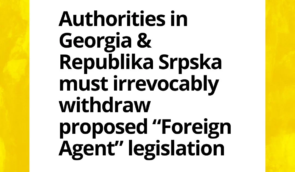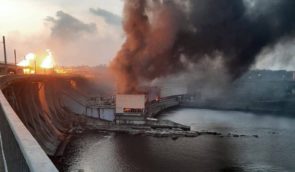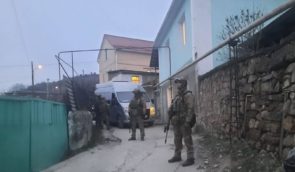Human rights defenders joined the accountability event in the UN
The event “Ukraine: Accountability for war crimes and serious human rights violations” took place on the margins of the 52nd session of the United Nations Human Rights Council in Geneva on 21 March. Symbolically, it was preceded by the presentation of an extended report by the Independent International Commission of Inquiry on Ukraine on the results of its investigation into violations in Ukraine, starting from 24 February 2022.
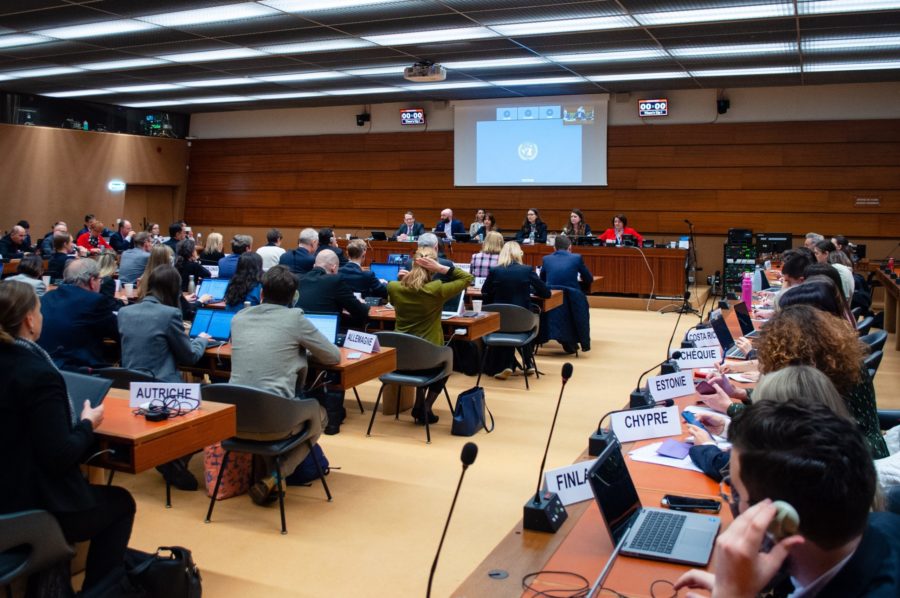 Photo credit: Human Rights House Foundation
Photo credit: Human Rights House FoundationThe event aimed to hold Russia accountable for violation of international and humanitarian law, as well as the commission of war crimes in Ukraine, took place in collaboration of the Permanent Mission of Ukraine in Geneva with the Human Rights House Foundation. Moreover, 44 countries and public organizations became co-organizers of the event.
Eight panellists, experts in their fields of specialization, discussed committed international crimes and possible ways of bringing Russia to justice. Participants were addressed by the representatives of the UN, the Ukrainian government and civil society.
Head of the Department for supervision of criminal proceedings regarding crimes committed in the context of armed conflict of the Office of the Prosecutor General of Ukraine, Yuriy Belousov, made an opening statement overviewing Ukraine’s efforts to investigate war crimes and create international mechanisms to bring perpetrators to justice.
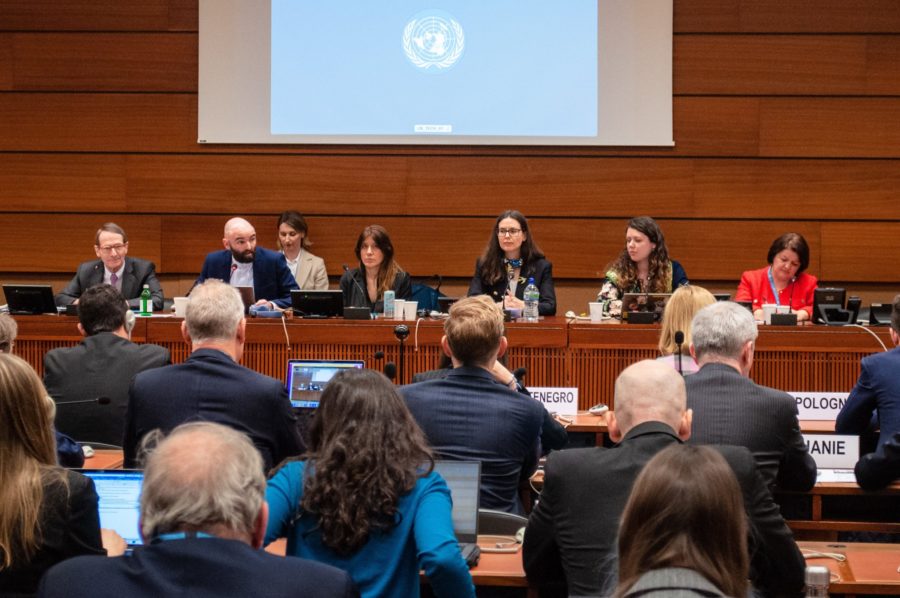 Photo credit: Human Rights House Foundation
Photo credit: Human Rights House FoundationMaria Kurinna, International Advocacy Officer at Human Rights House Crimea and expert at Human Rights Centre ZMINA, addressed the participants with the concrete numbers of the international crimes, committed by Russians in Ukraine. She mentioned 54 torture chambers discovered in the liberated territories and 503 cases of enforced disappearances of active citizens documented by ZMINA. Kurinna also emhpasized the destiny of over 155 Crimean political prisoners, including 15 professional and citizen journalists, and called for their liberation and taking urgent actions to assist political prisoners whose health is deteriorating each day.
“In the new temporarily occupied territories, Russia is implementing the “Crimean scenario”, particularly regarding the policy of forced demographic change. Such actions by the aggressor state are serious violations of international humanitarian law and international crimes under Article 8(2)(a)(vii) and 8(2)(b)(viii) and/or crimes against humanity under Article 7(1 )(d) of the Rome Statute of the International Criminal Court“, Maria Kurinna added.
Mariia Sulialina from the Center for Civic Education “Almenda” highlighted the militarization and indoctrination of children in the occupied territories. She expressed the hope that the mandate for the activities of the Independent International Commission of Inquiry on Ukraine will be extended, and the Commission will be able to investigate such a crime of Russia as erasing the Ukrainian identity of children in the occupied territories.
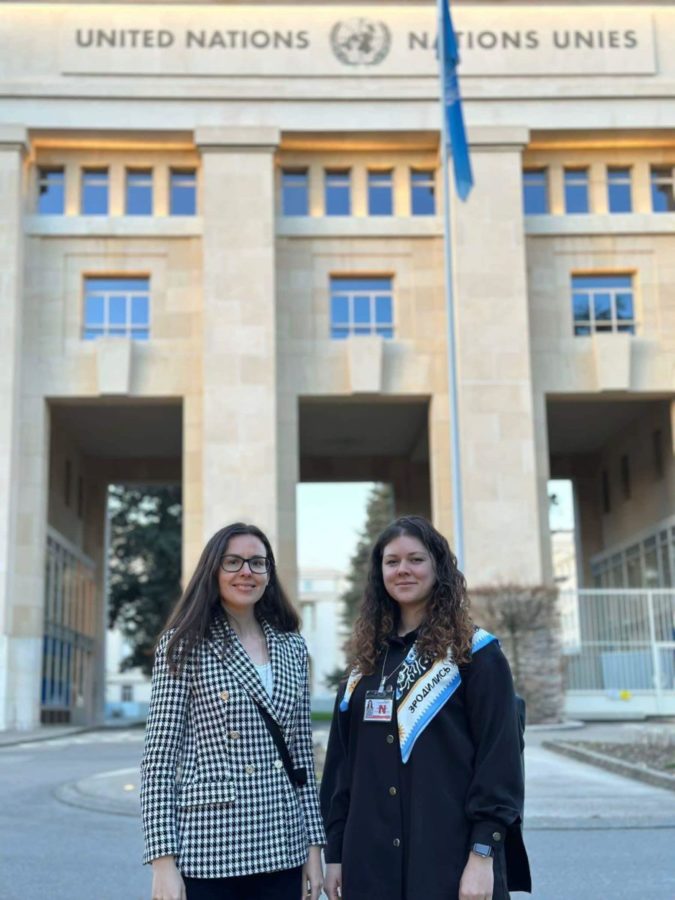 Maria Kurinna and Mariia Sulialina. Photo credit: Mariia Sulialina
Maria Kurinna and Mariia Sulialina. Photo credit: Mariia SulialinaThe Chairman of the UN Independent International Commission of Inquiry on Ukraine Eric Möse stated that the deportation of Ukrainian children to the Russian Federation is a war crime and noted the need to bring perpetrators to justice both at the national and international levels. He added that victims have the right to establish the truth, to get reparations and the guarantee of non-repetition.
During the closing remarks, Ukraine’s Ambassador to the UN in Geneva Yevheniia Filipenko highlighted the aspect of responsibility as an integral part of the implementation of the peace formula of the President of Ukraine Volodymyr Zelenskyy and called on the Member States of the UN Human Rights Council to support an extension of the mandate of the International Commission to Investigate Violations in Ukraine.
Background information:
The Human Rights Council is an inter-governmental body within the United Nations system made up of 47 States responsible for the promotion and protection of all human rights around the globe. It holds no fewer than three regular sessions a year, for a total of at least ten weeks.
In resolution 49/1, on the situation of human rights in Ukraine stemming from the Russian aggression, adopted on 4 March 2022, the Human Rights Council decided to establish an Independent International Commission of Inquiry on Ukraine to investigate all alleged violations and abuses of human rights and violations of international law, to collect, consolidate and analyze evidence of such violations and abuses, to document and verify relevant information and evidence, and to make recommendations to ending impunity and ensuring accountability.

